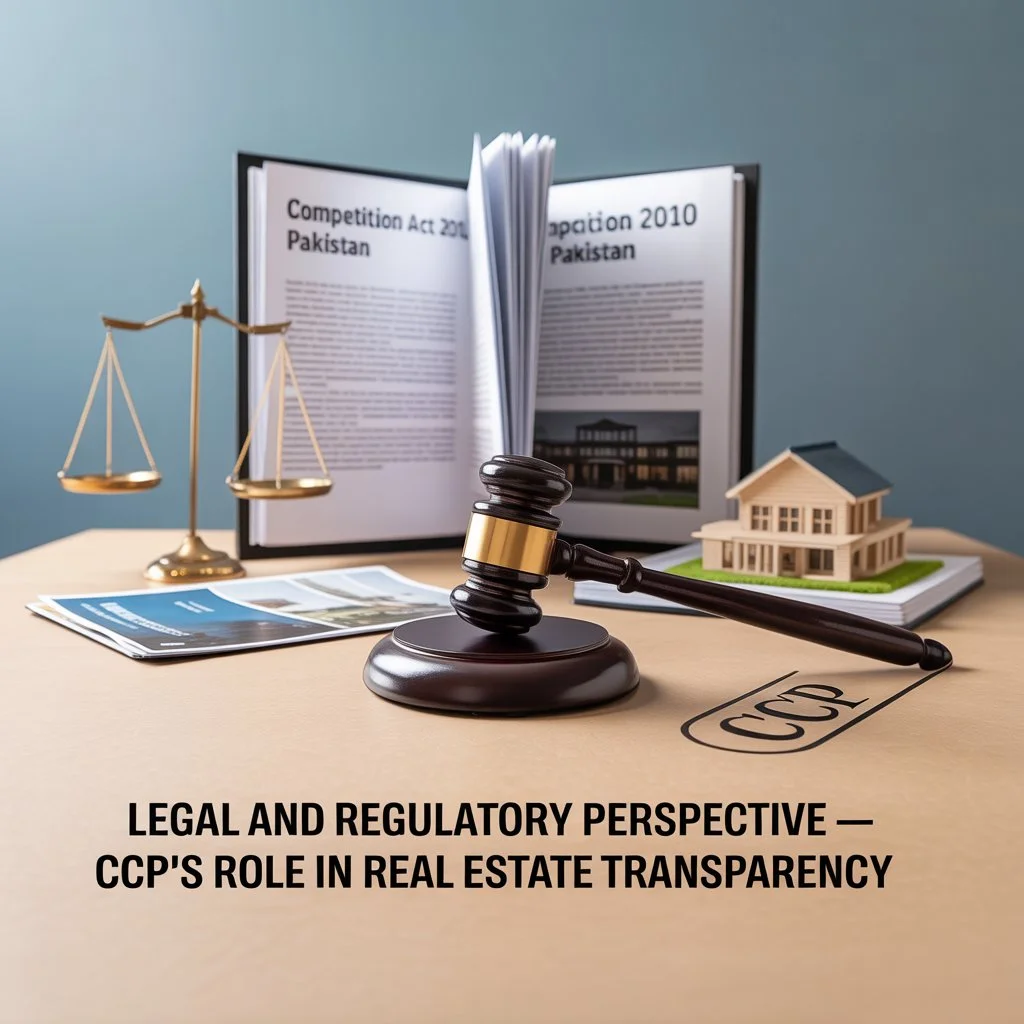The real estate Pakistan sector is once again under the spotlight as the CCP crackdown on deceptive real estate marketing in Pakistan gains momentum. The Competition Commission of Pakistan (CCP) has launched a formal inquiry into misleading marketing practices by several developers. This action highlights the urgent need for transparency, accountability, and fairness in real estate marketing across the country. The initiative not only safeguards buyers but also encourages developers to maintain ethical standards in an industry often affected by misinformation.
Why the CCP Inquiry Matters
The CCP Pakistan has initiated this investigation after receiving numerous complaints from consumers and investors regarding misleading ads and false claims by housing projects. Many housing schemes Pakistan have been accused of advertising unapproved projects, misrepresenting locations, and promising amenities that never materialize. The CCP inquiry into real estate developers misleading ads in Pakistan aims to eliminate such malpractices by enforcing the Competition Act 2010 Pakistan, which ensures fair competition and protects consumers from exploitation.
This move signals a positive change for the property investment Pakistan landscape. It reassures both local and overseas Pakistani property investments that the government is actively monitoring unfair practices in the real estate sector.
Common Deceptive Marketing Practices
Over the years, several unethical trends have emerged in real estate marketing. Among the most common are false claims of non-approval certificate (NOC), misrepresentation of location, and exaggeration of project features. Developers sometimes advertise plots as being near well-known landmarks or main city areas, when in reality, they are far from those locations.
Additionally, many housing projects promote false claims of amenities like schools, parks, and hospitals before receiving proper regulatory approvals in real estate. Some even charge hidden development charges, leaving unsuspecting buyers burdened with unexpected costs. The impact of deceptive housing scheme marketing on buyers in Pakistan has been severe many investors have lost money or received incomplete projects.
Legal and Regulatory Perspective

Under the Competition Act 2010 Pakistan, the CCP has the authority to investigate and penalize organizations involved in misrepresentation or false advertising. The legal penalties for false real estate advertising in Pakistan can include fines, suspension of marketing licenses, or public notices warning potential investors. These actions aim to deter developers from engaging in misleading promotions and create a more transparent real estate Pakistan market.
By taking this step, the CCP promotes fair competition and protects genuine investors. It also empowers buyers with accurate information about approved vs unapproved housing societies Pakistan, ensuring they make informed decisions before purchasing property.
Impact on Developers
For developers, this inquiry is both a challenge and an opportunity. The CCP crackdown highlights the importance of honesty and compliance in real estate marketing. Developers must ensure that all project details are factual, approvals are genuine, and promises are realistic. The what developers need to do to avoid CCP penalties for deceptive marketing is simple: maintain full transparency, secure proper documentation, and disclose accurate information in all advertising material.
Ethical developers who follow these standards will benefit from increased buyer trust and better brand reputation. As the market evolves, compliance will not just be a legal requirement it will become a competitive advantage.
Impact on Buyers and Investors
The CCP’s inquiry is a significant relief for property buyers and investors who have long struggled with property scheme scams Pakistan. It offers reassurance that the government is taking strong measures to protect consumers. For those planning to invest, understanding how to verify NOC and approvals before buying property in Pakistan is essential. Buyers should always request official documents, confirm with the relevant authorities, and consult registered agents before finalizing any deal.
Additionally, it is wise to avoid offers that sound too good to be true, as they often involve bogus housing schemes Islamabad/Rawalpindi or other cities. The tips for investors to avoid property scams in Pakistani housing schemes include checking developer history, visiting the site personally, and reviewing project listings through trusted real estate marketing channels.
How the Crackdown Benefits the Industry
The CCP’s initiative is not merely about penalizing wrongdoing it’s about cleaning up the industry for long-term growth. With stricter enforcement, the market will see a decline in unregistered housing societies and deceptive marketing campaigns. This transparency can attract foreign investors who are often hesitant due to regulatory uncertainty.
In the long run, the regulatory approvals in real estate process will become more streamlined, reducing risks for both developers and consumers. As compliance becomes the norm, housing schemes Pakistan that meet all legal and environmental requirements will stand out in a more competitive market.
Consumer Awareness and Responsibility

While the CCP is taking legal action, consumer education remains equally important. Buyers should stay informed about real estate advertisement laws Pakistan and be cautious of advertisements that lack detail. Understanding marketing claims vs actual delivery can save investors from disappointment. Every buyer must verify NOC and project approvals before making payments to avoid being trapped in property scheme scams Pakistan.
Moreover, media outlets and digital platforms should play their role by fact-checking real estate marketing campaigns and preventing unverified ads from reaching the public. Transparency from all sides can reshape the industry’s image.
Long-Term Outlook for the Market
The crackdown represents a turning point for the real estate Pakistan sector. By discouraging deceptive practices, the CCP is paving the way for a market based on consumer protection real estate principles. Developers that follow ethical practices will thrive, while dishonest entities will gradually be eliminated.
In the future, increased enforcement of real estate advertisement laws Pakistan will boost investor confidence and stabilize the market. As a result, property prices will become more consistent with actual project value rather than hype-driven marketing. This change will ultimately benefit everyone buyers, investors, and developers alike.
Conclusion
The CCP crackdown on deceptive real estate marketing in Pakistan is a much-needed reform that aligns with global standards of business transparency. By enforcing the Competition Act 2010 Pakistan, the commission is restoring public trust in the property sector. For developers, it’s a call to adopt ethical marketing and compliance practices. For buyers, it’s a step toward safer investments and informed decisions.
The outcome of this inquiry could reshape Pakistan’s property landscape where honesty, authenticity, and verified development take center stage. It’s a moment of accountability that promises a brighter, more trustworthy future for real estate Pakistan.
Want to know more? Check out FBR Launches AI Chatbot: What It Means for Property Taxpayers in Pakistan
Like, share and comment: Facebook, Instagram, Youtube and TikTok.





Join The Discussion